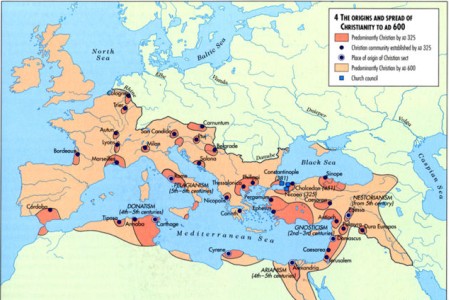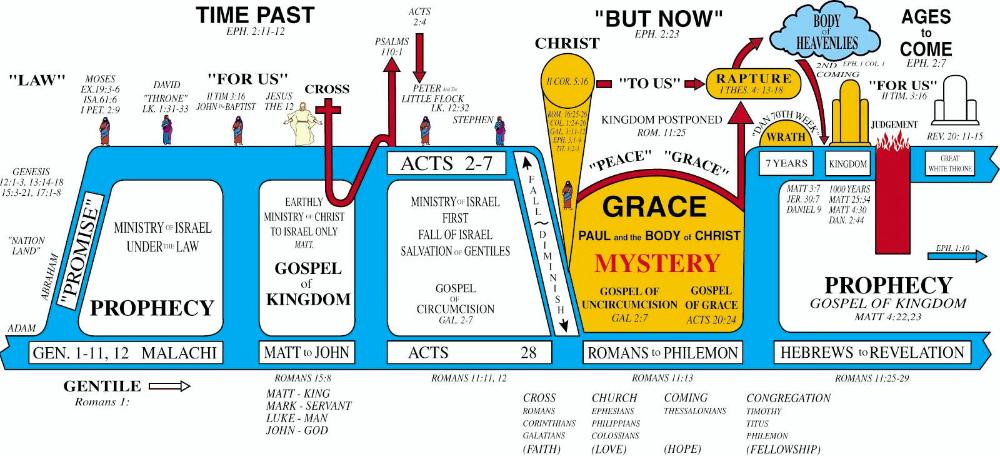and three between God and mankind in general:
Adamic (Genesis 3:16-19)
Noahic (Genesis 8-9)
New (in Christ, an offer of salvation for the world; Jeremiah 31:31-34, Matthew 5:17, "For the law was given through Moses, but grace and truth came through Jesus Christ." John 1:17)
Some Christians believe that all of the covenants were/are conditional in nature. If the covenants are conditional, then Israel failed to fulfil them. Others believe that the unconditional covenants have yet to be totally fulfilled and, regardless of Israel's disobedience, will come to fruition sometime in the future. Some believe that the church fulfils the covenants and God will never deal with Israel again (this is called "replacement theology"). Others believe that the church initially or partially will fulfil these covenants, while many of the promises towards Israel are still in the future.
In terms of a "Christian world view" about history (past and future) it is useful not to get lost in the maze of theological nuances, but that can be difficult once discussion starts.
"Enlightenment" and Deism
The term "Enlightenment" generally refers to a movement in the 17th & 18th centuries in Europe and overseas colonies (commencing around the end of the English Civil War and concluding at the start of the French Revolution), in which ideas about God, the role of reason (induction), nature (the universe being ruled by natural law) and progress were rejected or blended into a non-Christian worldview that gained wide assent and instigated developments in art, philosophy, and politics.
From a theological standpoint, the Enlightenment signalled disillusionment with clerical structures (especially after the Reformation and Counter-Reformation); increasing scepticism about organised religion/faith, linked to the established church rejecting discoveries, which made it look out of touch, and separation of church and state.
It was also linked to secularisation of society; a sense of renewal; increased emphasis on man's ability (without God); emphasis on human knowledge; growth in cities and nation states and emerging theories about power (old political structures were coming down); the invention of printing, which allowed ideas to spread quickly, renewed interest in the Classics (the histories and philosophies of Greece and Rome); and interest in the natural world as distinct from the spiritual realm, combined with discoveries flowing from the Age of Exploration and encounters with other belief systems.
Leaders such as Voltaire, Jean-Jacques Rousseau, Benjamin Franklin, Thomas Paine, Thomas Jefferson, Goethe and Alfred Lord Tennyson emerged as "Deists". They spoke of "Providence" and "God" in such a way that people took them (still do) to be Christians. A great number of the United States' founding fathers were deists, which is why they advocated the separation of church and state in their new nation. They distrusted organised religion, even though they believed in a creator.
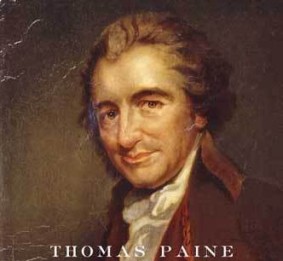
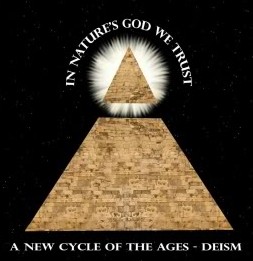
These changes occurred at the same time as social reforms driven by concerned Christians, and revivals in Europe and North America, including the Great Awakenings, and great missions initiatives.
A lot of uncritical commentary about the Enlightenment period fails to acknowledge the work occurring at the time by the world-wide Christian community; all historians and social scientists have their own world views. It also misses the point that, while the leaders of the Enlightenment were at the height of their popularity, they were in the minority; the majority of people continued to believe in God and go to church.
Deism is not a religion but a perspective on the nature of God. Deists believe that:
- a creator God does exist, however after the motions of the universe were set in place He retreated, having no further interaction with the created universe or beings within it;
- because God is no longer involved, He has neither need, nor want, of worship;
- God does not care whether humanity believes in Him; He does not get involved in human affairs and does not take sides in wars;
- because God has no desire for worship or other specific behaviour, there is no need for Him to speak through prophets, or send representatives of Himself among humanity;
- because He created the motions of the universe during creation; there is no need for Him to make mid-course corrections through the granting of visions, miracles and so forth;
- because God does not manifest Himself directly, He can only be understood through the application of reason and through the study of the universe;
- given the greatness of creation and the faculties granted to humanity, such as the ability to reason, all forms of religion can be rejected; any knowledge one has of God should come through one's own understanding, experience and reason, not the prophecies, views or traditions of others;
- as God in not interested in praise or relationship, He is unapproachable via prayer;
- organized religions add layers of untruth to the reality of God; some deists see value in organized religion for common people, because religion is able to instil acceptable and peaceful concepts of morality, a sense of community, compliance with traditions and obedience of authority for eternal rewards; this suits rulers;
- religious rules can (and should be) replaced by current ethics.
Judeo-Christian Heritage

The Western way of life, its ideals, standards, structures and systems, all had their origins in the influence of Christians. Nations such as Australia (colonised from England) trace the origins of their national values to the teachings of the Bible, the Law of Moses (in particular the Ten Commandments) and the impact of evangelicalism on the first nation builders. Early Christian leaders helped shape the nation we are today.
Many of the first settlers and leaders were strongly motivated by their identity as Christians, some of them by strong Christian commitments. These commitments were influential in the way Sunday and Christian festivals were observed, church schools were established, laws were framed and the Australian Constitution was written; we must acknowledge of the place of God in Australia's heritage and identity, and not airbrush them out of our history.
Many parts of the world were impacted by Christian mission during periods of colonisation that left systems roughly based on the colonial powers' interpretation of Judeo-Christian values.
People like the church fathers, Augustine, Luther and Wesley helped shape modern thought and the good foundations of Western civilisation. The very real historical impact of Christian belief and teaching on our way of life is to be celebrated by Christians. And strenuously defended against those who seek to deny, subvert and erode it.
Christian Nations? "In God we trust" - But do we?
Alexis de Tocqueville (1805-1859), a French traveller/philosopher/writer who visited the new American states and is best known for his works Democracy in America and The Old Regime and the Revolution, believed that Christianity was the source of the principles of liberal democracy, and the only religion capable of maintaining liberty in a democratic era. He taught that Christianity was not antagonistic to democracy in the United States, where it was a bulwark against dangerous tendencies toward individualism and materialism, which would lead to atheism and tyranny.
"The founding document of the United States of America acknowledges the Lordship of Jesus Christ because we are a Christian nation." (Pat Robinson)
British writer G. K. Chesterton said that the United States was "the only nation...founded on a creed" and also created the phrase "a nation with a soul of a church". Many people believe that the words "In God we trust" (on American money) convey American's long-standing dependence on God; this is only partially true, as it did not appear on US coins until 1864 and on paper currency until 1957; the first cent coins did not bear this motto, but stated "Mind your business".
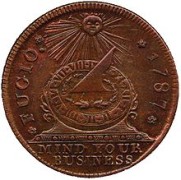
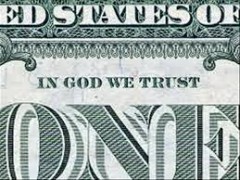
"Australia is also a Christian country. At the time of Federation in 1901, 96 per cent of Australians described themselves as Christians, and while the figure is now about 62 per cent, the reality is that Australians still turn to the Church in moments of sorrow and loss.... There are some in Australia who argue that we are a secular nation and that there is no room for Christianity; especially in relation to being involved in public debate. They are wrong. The freedom to hold and to express religious views and beliefs is guaranteed by international covenants and agreements... In addition to being the source of our rights and freedoms, Christianity also contributes to community health and welfare... If we are to remain a peaceful, prosperous and welcoming country, like the British prime minister argues in relation to England, we need to acknowledge and celebrate Australia's Judeo-Christian heritage and what makes this nation unique. (Dr Kevin Donnelly, senior research fellow at the Australian Catholic University and Director of Education Standards Institute.)
However, just because a political leader uses words such as "God", "blessing", "pray", or "renewal of spiritual belief" it should not be assumed that he or she is a Christian or is implying authentic Christian meaning. Civil religion and "common faith" are rallying points in some cultures and political processes, but they are often just "hype". When former Prime Minister Tony Abbott (Opposition Health spokesman at the time) told a Christian gathering in Canberra that the answer to Australia lay in a "renewal of faith"; the audience applauded; this was what they wanted to hear; but no one asked what he meant. Hindus and atheists have "faith".
Is there such a thing as a Christian party or nation? As distinct from a nation with a majority of people identifying as "Christian". Jesus strenuously avoided Jewish nationalism when speaking about the Kingdom of God. Consider Dutch Reform support for apartheid in South Africa.
We need to check labels and claims carefully. For illustrative purposes, consider the following table prepared by the Australian Christian Values Institute in advance of a state election in Australia (New South Wales, 2015):

Comment by the ACVI: "Judging by the results of the above Checklist we can see that the current Premier of NSW, Mike Baird, whilst a practising Christian, leads a party that has fallen into the grip of secular humanism. The same could be said of Luke Foley, the Labor Leader of the Opposition. Claiming to be a practising Catholic, he leads a party that seems even more committed to eradicating Christian values from public life. While the official party platform of a political party may not measure up well to the Christian Values Checklist, we must not simply write them off. We want to encourage you to pray, not only for the party leaders but also for all the candidates and especially Christians in this election."
Interpreting History Christianly?
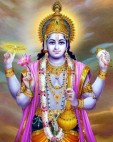
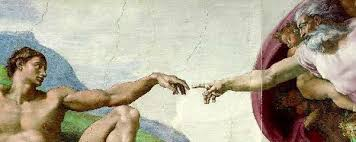

Whose view of history?
"It is in Christianity that our arts have developed; it is in Christianity that the laws of Europe--until recently--have been rooted. It is against a background of Christianity that all of our thought has significance. An individual European may not believe that the Christian faith is true, and yet what he says, and makes, and does will all spring out of his heritage of Christian culture and depend upon that culture for its meaning. I do not believe that culture of Europe could survive the complete disappearance of the Christian faith. And I am convinced of that, not merely because I am a Christian myself, but as a student of social biology. If Christianity goes, the whole culture goes." (T.S. Eliot, Christianity and Culture: The Idea of a Christian Society and Notes Towards the Definition of Culture, April 11th 1960 by Mariner Books, (first published 1939.)
"Things have come to a pretty pass," Britain's Lord Melbourne (Prime Minister from 1834-1841) once declared, "when religion is allowed to invade the sphere of public life." Melbourne was criticising the campaigning of Christians, such as William Wilberforce (1759-1833, a Member of Parliament), who were instrumental in the ending of slavery in England.
Chuck Colson (1931-2012) offered this perspective on Lord Melbourne's objection:
"Thank God religion did invade public life, because it brought an end to slavery."
Beliefs in the sanctity of human life, conscience, free will, ultimate accountability, a commitment to sharing and selflessly promoting the common good, forgiveness, reconciliation, and the idea of "redemption" are rooted in Christianity.
Can we assert a Judeo-Christian heritage? What are the challenges, when interpreting history through a lens of a "disestablished" state system?
- it contains hints of the Renaissance-era "divine right of Kings" (kings in Europe believed that they "derived their authority from God" and that they could not therefore be held accountable for their actions by any earthly authority such as a parliament)
- the concept can come across as a pro-Western paradigm;
- it can come across as a position of the conservative side of politics (eg the "religious right" in the USA); extreme views lead to proponents believing that those who differ from them, or oppose them politically, economically, or socially, are not supporting the nation's values (especially in an era of heightened national security risks and suspicions)
- we cannot afford to label political parties/agendas, national flags (or other symbols or rituals of "nation"), or traditions as inherently "Christian", just because we use them (even if they were birthed through Christian influence the symbolism may no longer be understood or believed in); if we do so it shows we learned nothing from the Crusades;
- Christians, of all people, should have the wisdom to distinguish between truth and political rhetoric, and to challenge the latter.
- symbols that are Christian in origin can provide opportunities for leaders who are genuine Christians (in any sphere) to remind people of the Judeo-Christian heritage.
- 24% of Australians were born overseas; at least one of the parents of a further 25% was born overseas; large numbers do not have a Judeo-Christian background, but they have chosen to live in Australia
- where are lines drawn, for example:
- some Christian revisionists equate our culture, national identity and government with Christianity in action
- they believe we should adopt systems of jurisprudence (including punishments) based on the Old Testament Law
- how are Christians to treat unbelievers who are fellow-citizens?
Christianity was born with a unique Jewish heritage, but (after consideration of the issues, see especially Acts 15 and Galatians) Gentile Christians were not required to keep the Law to be genuine believers. Followers of Jesus Christ ceased to be viewed as a Jewish sect, and were called "Christians". The Bible contains the Old Testament, but is much more. This suggests that the term "Judeo-Christian", when cited, needs to be unpacked contextually and applied carefully.
Christians believe that God is our creator, that He wants to have a relationship with the human race, and that we are incomplete without Him. History is not a random series of events, or a cycle of unending dramas, but has unfolded under the watchful eye of God and is moving towards a climax He has purposed.
Christians ought to do all they can in the public sphere to influence political, economic and legal debate and decisions, media coverage, honesty on the part of our leaders and opinion makers and the direction of the nation, eg in relation to the meaning and strength of marriage, the robustness of the family, social cohesion and equality, a strong safety net for those less well off, and economic and cultural values. Christians ought to pray for their leaders, while holding them to account; live godly lives; exemplify the spirit of Christ when engaging with the world; get involved in evangelism; and pass on their beliefs and lifestyle to their children. But they should keep their view fixed on Jesus' perspectives of the world and the real Kingdom.
Christian involvement in politics, economics and social engineering can be positive and produce powerful outcomes - unlike many countries, which do not enjoy our freedoms - but we should be Christians first, and not seduced by power politics for its own sake.
At the end of the day, living by a Christian world view remains a matter of revelation and transformation around a person, the God-man. Christian "eyes" only come from a one-on-one relationship with Him.


